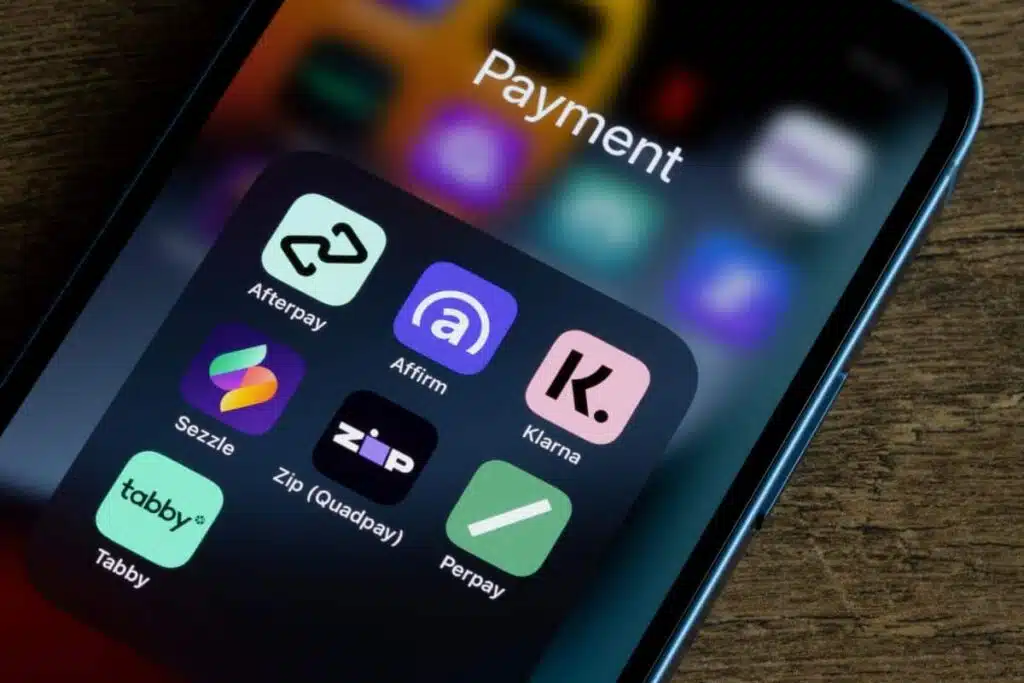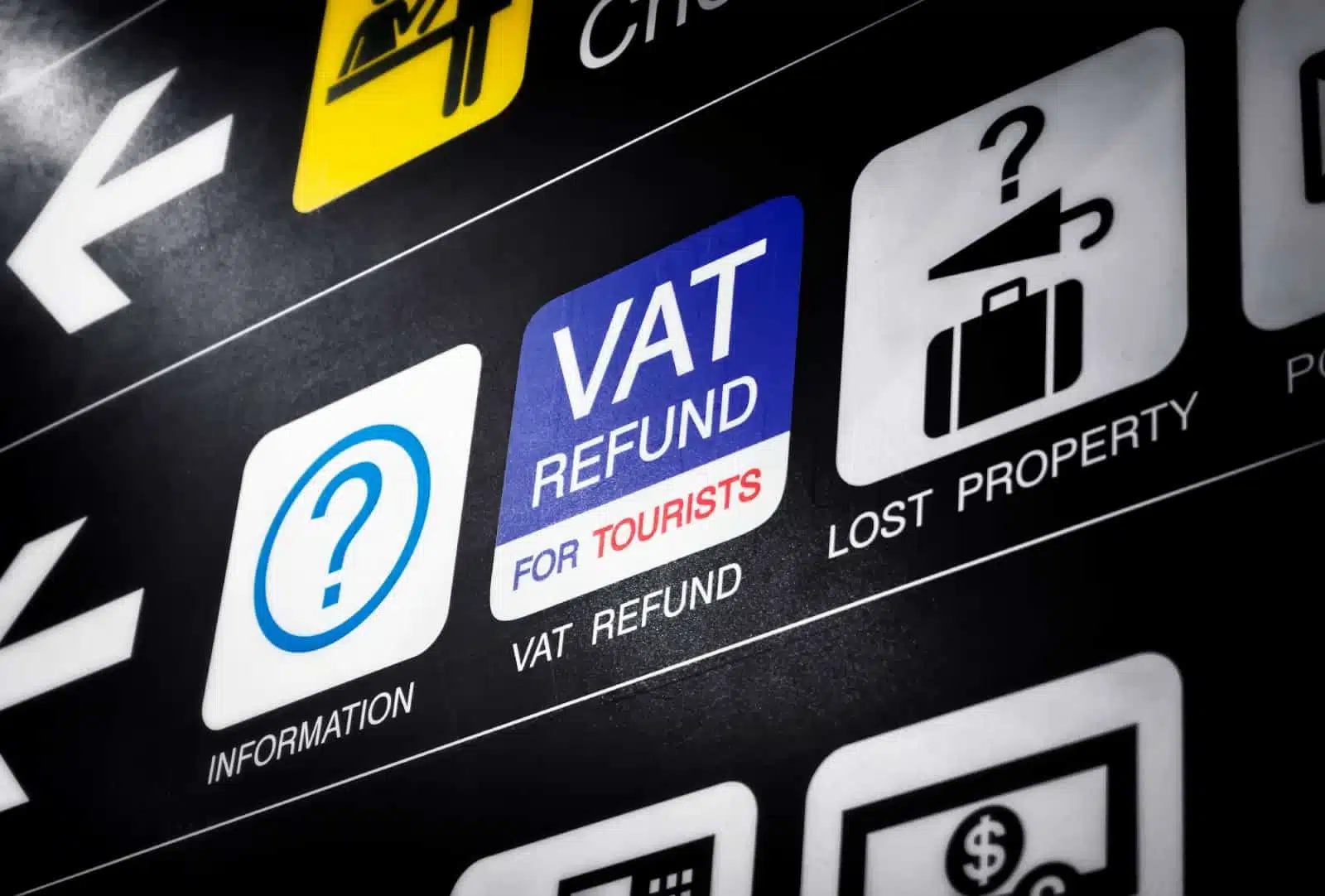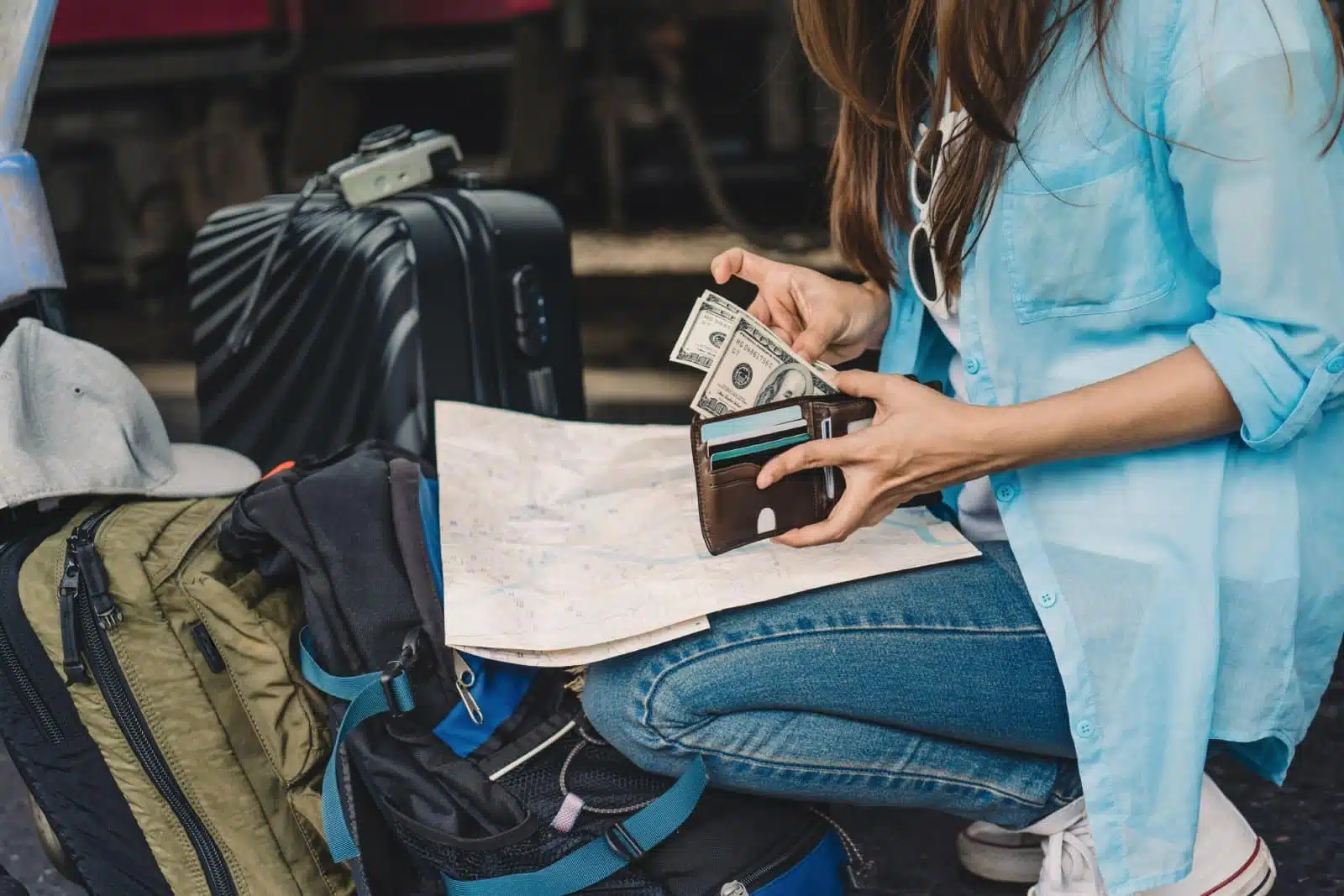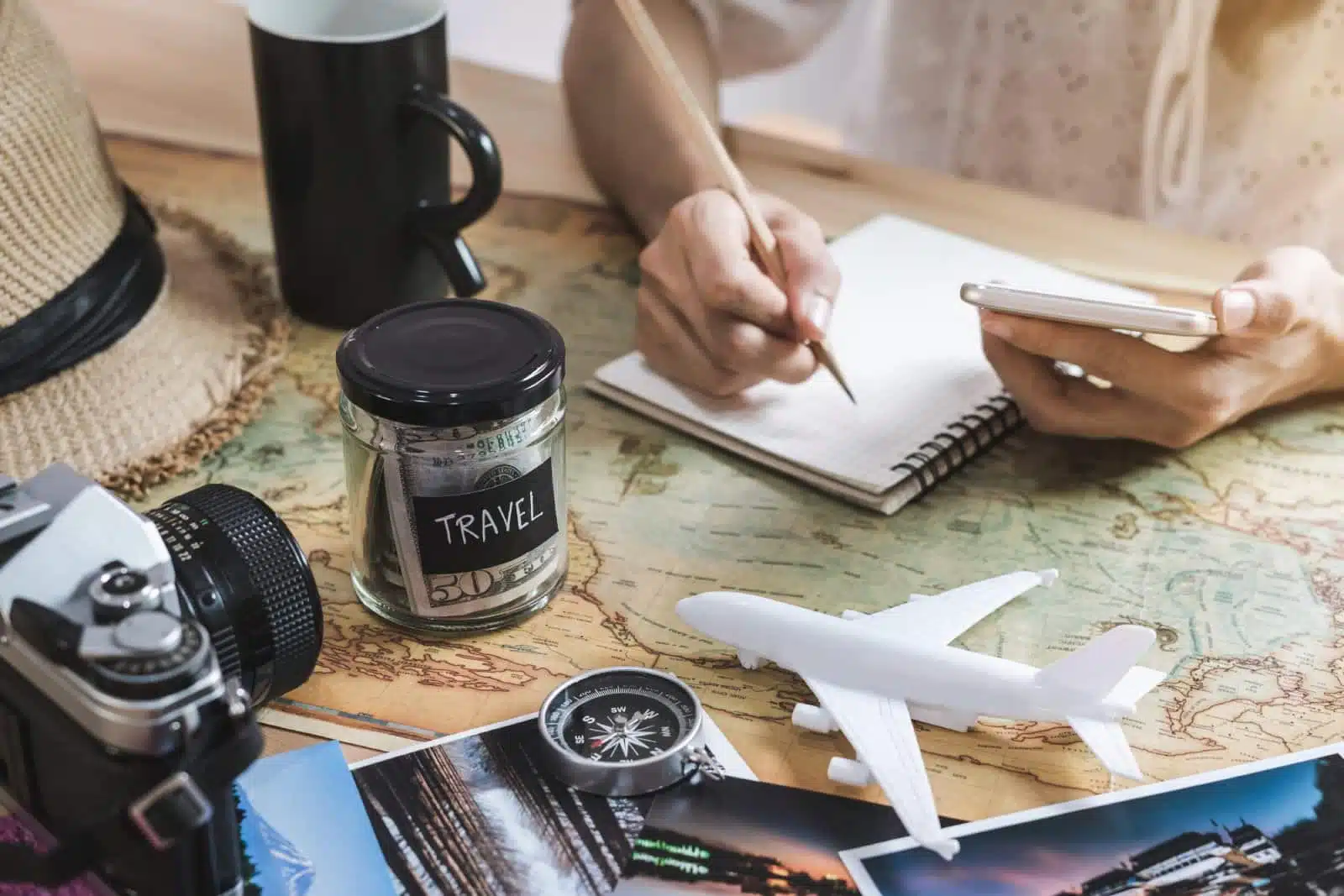Navigating financial waters in a foreign country can be as daunting as exploring its narrowest alleys and busiest boulevards. From currency exchange to budgeting, managing money abroad requires insight, preparation, and a bit of savvy to ensure a smooth and enjoyable travel experience. This guide will help you understand the essential aspects of financial management for the international traveler, offering professional advice on making the most of your money while exploring new destinations. Focusing on practical strategies and insider tips, we aim to equip you with the knowledge needed to handle currency exchange rates, avoid unnecessary fees, and budget effectively, ensuring your adventure is both enriching and economical.
1. Understanding Currency Exchange Rates

Image Credit: Shutterstock / Africa Studio
Currency exchange rates are the cornerstone of financial management while traveling. These rates determine how much of one currency you can get for another and fluctuate due to various economic factors. Before traveling, familiarize yourself with the current exchange rates and understand that rates offered by banks, currency exchange kiosks, and ATMs may differ significantly. Using reputable online currency converters can provide a baseline understanding, but always be prepared for slight variations when exchanging in-person exchanges.
Insider’s Tip: Avoid exchanging money at airports or hotels where rates are less favorable. Instead, opt for local banks or ATMs for better rates. Additionally, informing your bank of your travel plans can prevent your card from being flagged for suspicious activity, ensuring access to local currency through ATMs without interruption.
2. Choosing the Right Payment Methods

Image credit: Shutterstock / fizkes
Selecting the most efficient payment methods can significantly impact your travel budget. While cash is universally accepted, carrying large amounts poses a security risk. Credit and debit cards offer convenience and often competitive exchange rates, but foreign transaction fees can add up. Investigate your card’s policies on international transactions before departure. For longer stays, consider obtaining a local bank account or a travel card to minimize fees and enjoy local payment conveniences.
Insider’s Tip: Look for credit cards that offer rewards on travel purchases and do not charge foreign transaction fees. Additionally, using contactless payments through smartphones can offer a secure and fee-efficient way to make purchases abroad, where accepted.
3. Budgeting for Your Trip

Image credit: Shutterstock / Aleksandr Grechanyuk
Effective budgeting is crucial for a stress-free travel experience. Start by researching the cost of living in your destination, including accommodation, food, transportation, and entertainment. Setting a daily spending limit can help you stay on track financially. Remember to account for unexpected expenses by setting aside a contingency fund. Utilizing budgeting apps can help monitor your expenses and adjust your spending habits in real time.
Insider’s Tip: Prioritize your spending based on your travel goals. If dining out and experiencing local cuisine is important to you, allocate more of your budget to food and cut back on other expenses like souvenirs or luxury accommodations.
4. Avoiding Hidden Fees and Charges

Image Credit: Shutterstock / Nejron Photo
Hidden fees and charges can quickly erode your travel budget. Common culprits include ATM withdrawal fees, credit card foreign transaction fees, and dynamic currency conversion fees when you opt to be charged in your home currency at a point of sale. Reading the fine print on your cardholder agreement and asking about potential fees when using your card can save you money.
Insider’s Tip: Always choose to be charged in the local currency when using your credit or debit card abroad. This avoids the high mark-ups associated with dynamic currency conversion and ensures you get the best possible rate.
5. Using Technology to Manage Finances

Image credit: Shutterstock / Tada Images
Technology plays a pivotal role in managing finances efficiently while traveling. Mobile banking apps allow you to monitor accounts, transfer money, and even freeze your card if it’s lost or stolen. Currency conversion apps provide real-time exchange rates, helping you make informed decisions about when and where to exchange money. Budgeting apps can track your spending patterns and help you adjust your budget on the go.
Insider’s Tip: Leverage technology to set up instant notifications for transactions on your accounts. This helps with budgeting and provides an immediate alert to any unauthorized use of your cards, enhancing security.
6. Navigating Taxes and Refunds

Image Credit: Shutterstock / Seika Chujo
Understanding the tax implications of your purchases abroad can lead to significant savings, particularly with value-added tax (VAT) refunds in many countries. Keep receipts for major purchases, as tourists often qualify for tax refunds on goods bought during their travels. However, the process varies by country and may require paperwork to be filled out at the point of purchase or upon departure.
Insider’s Tip: Research the VAT refund process for your destination before you go. Some countries offer kiosks at airports where you can claim your refund in a straightforward manner, but knowing the procedure can save you time and ensure you don’t miss out on refunds due to technicalities.
7. Planning for Emergencies

Image Credit: Shutterstock / R Photography Background
Financial emergencies can occur anywhere, and a plan is essential. This includes access to emergency funds through a savings account or a credit card with a sufficient limit. Additionally, travel insurance can provide financial protection against a range of unforeseen circumstances, including trip cancellations, medical emergencies, and lost luggage.
Insider’s Tip: Consider a multi-currency account or a prepaid travel card loaded with emergency funds. These options can provide an additional financial safety net without the need to carry large amounts of cash.
8. Understanding Local Tipping Customs

Image Credit: Shutterstock / New Africa
Tipping customs vary greatly around the world, and understanding local practices is important to avoid over-tipping or offending service providers. In some countries, tipping is not customary and can even be considered rude, while in others, it constitutes a significant portion of a service worker’s income. Researching tipping etiquette in your destination will ensure you’re prepared and respectful of local norms.
Insider’s Tip: In countries where tipping is expected, familiarize yourself with the typical percentages for different services. Keeping small denominations of local currency on hand makes it easier to tip appropriately.
9. Investing in Local Experiences

Image Credit: Shutterstock / eldar nurkovic
Managing your travel budget effectively involves deciding how to allocate your funds to gain the most enriching experiences. Often, investing in local experiences rather than material goods can lead to more memorable and meaningful travel. Whether it’s a cooking class, a guided tour, or a local festival, these experiences provide deeper insights into the culture and traditions of your destination.
Insider’s Tip: Seek out experiences unique to the destination that might not be found elsewhere. Local markets, workshops, and community events are often less expensive than tourist attractions and offer a more authentic glimpse into local life.
10. Safeguarding Your Money

Image Credit: Shutterstock / HappyTime19
Keeping your money safe while traveling is paramount. This includes physical safety measures, such as using a money belt or a secure travel wallet, as well as digital security practices like using secure Wi-Fi connections for financial transactions and being cautious of public charging stations, which can be used to install malware on your devices.
Insider’s Tip: Split your money and cards between different locations on your person and in your luggage. If you have a travel companion, consider dividing funds between you. If one person loses their wallet or experiences theft, you won’t be left completely stranded.
The Bottom Line

Image Credit: Shutterstock / kitzcorner
Managing money while traveling abroad doesn’t have to be stressful. With careful planning, awareness of local customs, and the right financial strategies, you can navigate foreign economies confidently and enjoy your travels fully. Remember, the goal is not just to save money but to use it wisely, enhancing your travel experience without compromising security or missing out on what your destination has to offer.
More From The Green Voyage
12 Best Practices for Sustainable Travel in 2024 – How to Travel With Minimal Environmental Impact
Unlocking Hotel Perks – A Traveler’s Guide to Maximizing Hotel Reward Programs for Optimal Benefits
Travel Hacks for Frequent Flyers – 6 Tips and Tricks to Make the Best of Air Travel
The post Managing Money – Currency Exchange and Budgeting Abroad 2024 first appeared on The Green Voyage.
Featured Image Credit: Shutterstock / VGstockstudio.
For transparency, this content was partly developed with AI assistance and carefully curated by an experienced editor to be informative and ensure accuracy.
Tips for Trip Success
Book Your Flight
Find an inexpensive flight by using Kayak, a favorite of ours because it regularly returns less expensive flight options from a variety of airlines.
Book Your Hotel or Special Accommodation
We are big fans of Booking.com. We like their review system and photos. If we want to see more reviews and additional booking options, we go to Expedia.
You Need Travel Insurance!
Good travel insurance means having total peace of mind. Travel insurance protects you when your medical insurance often will not and better than what you get from your credit card. It will provide comprehensive coverage should you need medical treatment or return to the United States, compensation for trip interruption, baggage loss, and other situations.Find the Perfect Insurance Plan for Your Trip
